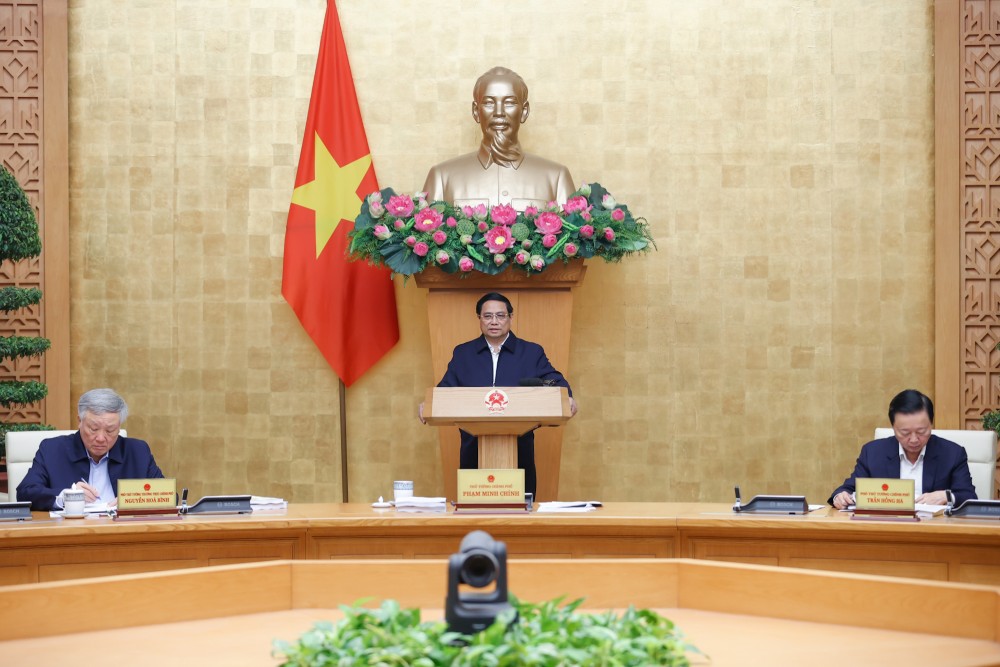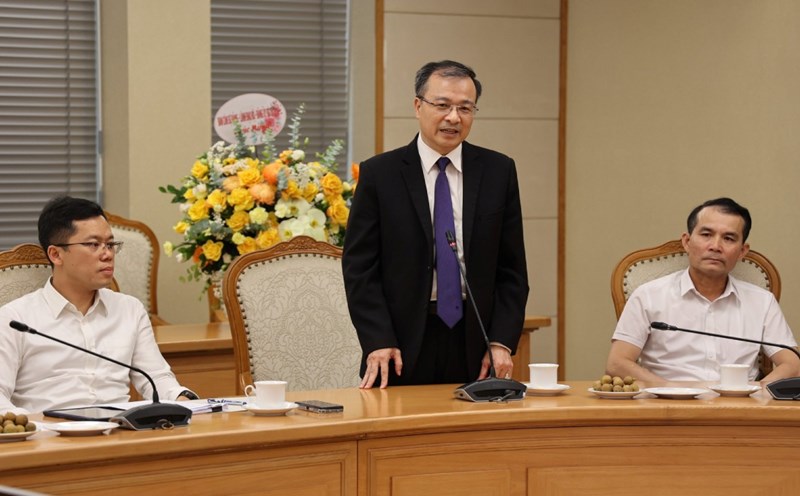On January 7, in Hanoi, Prime Minister Pham Minh Chinh chaired a Government meeting on law-making in January 2025; discussing 7 draft laws and resolutions to be submitted to the National Assembly at the upcoming session in February.
According to the meeting agenda, the Government reviewed and gave opinions on: Draft Law on Government Organization (amended); Draft Law on Organization of Local Government (amended); Draft Resolution of the National Assembly on the establishment of a number of Ministries of the 15th Government, term 2021-2026; Draft Resolution of the National Assembly on the structure of the number of Government members for the 16th National Assembly; Draft Resolution of the National Assembly addressing issues arising in legal provisions related to the arrangement of the apparatus; Draft Law on Promulgation of Legal Documents (amended); Draft Law on Participation in United Nations Peacekeeping Forces.
Speaking at the opening of the meeting, Prime Minister Pham Minh Chinh emphasized that the seven draft laws and resolutions discussed at the meeting are very important in terms of organization and apparatus, and timely institutionalization of the Party's policies and guidelines on innovation of the organization and operation of the Government and local authorities.
With a strong spirit of innovation, working from top to bottom and bottom to top, "The central government sets an example, the local government responds", "running and lining up at the same time", not allowing work to be interrupted, the new organizational model must be better, more effective, and people will enjoy more of this achievement.
The Prime Minister stated that this is a difficult task with many complicated contents, so it must be carried out with great focus and urgency from now until the Central Conference and the National Assembly session to resolve problems related to the organization and operation of the apparatus.
The Prime Minister emphasized that authority goes hand in hand with responsibility; whoever is assigned to decentralize, delegate, or authorize must decide, and when deciding, must take responsibility; all levels of decentralization, delegation, or authorization are responsible before the Government and the law for the implementation of the decentralized, delegated, or authorized authority.

The Prime Minister also said that the powers of the Government and local authorities need to be concentrated in the Law on Government Organization and the Law on Local Government Organization, not scattered, fragmented, or dispersed in specialized laws.
Along with that, abandon the mindset of "if you can't manage, ban it, if you don't know, manage it"; thoroughly grasp the mindset of whoever does it best, hand it over to that person; people and businesses can do it, and can do it better, hand it over to them; what is banned, put it into law, what is not banned, let people and businesses be allowed to do and have space for creativity and innovation.
The Prime Minister noted that decentralization and delegation of power go hand in hand with streamlining the apparatus, streamlining staff, promoting digital transformation, building digital data, and applying artificial intelligence (AI) in the work of agencies, units, and localities.
On this occasion, the Prime Minister highly appreciated the Ministry of Home Affairs for "working day and night" on very difficult and complicated tasks related to streamlining and reorganizing the apparatus, and submitting to the Government for promulgation 3 Decrees 177, 178 and 179 on regimes and policies for cadres, civil servants, public employees and workers.
We have also basically completed the plan to merge and consolidate ministries and agencies and the plan to rearrange the internal organization and apparatus of ministries and agencies in accordance with the direction of the Central Steering Committee and the Government to submit to competent authorities.
Along with that, the Prime Minister requested ministers, heads of sectors and the Ministry of Home Affairs to continue to complete plans to continue to arrange and streamline the internal apparatus, functions, tasks and powers of ministries, sectors and agencies to report to competent authorities.











